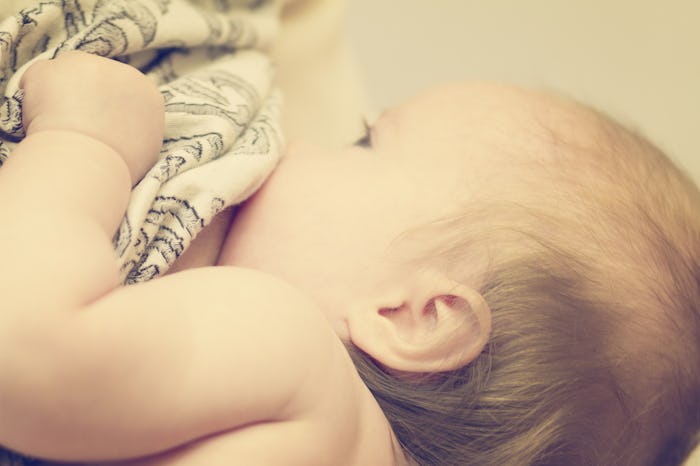If you're not pregnant or planning on becoming pregnant, the Zika virus probably hasn't panicked you too much. But the scary thing about this virus is how it seems to constantly be changing, yet we still don't know a whole lot about it in the grand scheme of things. Now, concerns are being raised every day, even from those who aren't pregnant, like wondering if you can breastfeed if you have the Zika virus.
Since Zika can be transmitted from mother to fetus during pregnancy and there is now scientific evidence that the virus can cause microcephaly and Guillain-Barré syndrome according to the World Health Organization, it's a legitimate fear. The Centers for Disease Control and Prevention has also reported that the Zika virus can be transmitted through sexual contact and that blood transfusions and organ and tissue transplants also have theoretical risks. So if there is a pattern of sharing bodily fluids and contracting the Zika virus, is breastfeeding off limits?
Nope. While the World Health Organization notes that the Zika virus has been detected in breast milk, there is currently no evidence that breastfeeding transmits the virus to babies. The CDC also backs up the statement, recommending that it doesn't matter if you contracted the Zika virus while pregnant or are currently infected, the benefits of breastfeeding outweigh any theoretical risks of your baby contracting the Zika virus through your breast milk. Both WHO and the CDC are encouraging all women to continue to breastfeed, as there's no evidence to prove that a baby can contract the Zika virus through an infected mother's breast milk.
As scientists continue to learn more about the Zika virus, guidelines will continue to be updated. So unless there is an update on the breastfeeding guidelines from an organization like WHO or the CDC, feel free to continue breastfeeding your baby. If you want to make sure you don't contract the virus, the CDC recommends using an EPA-registered repellent as it's safe for nursing mothers.
